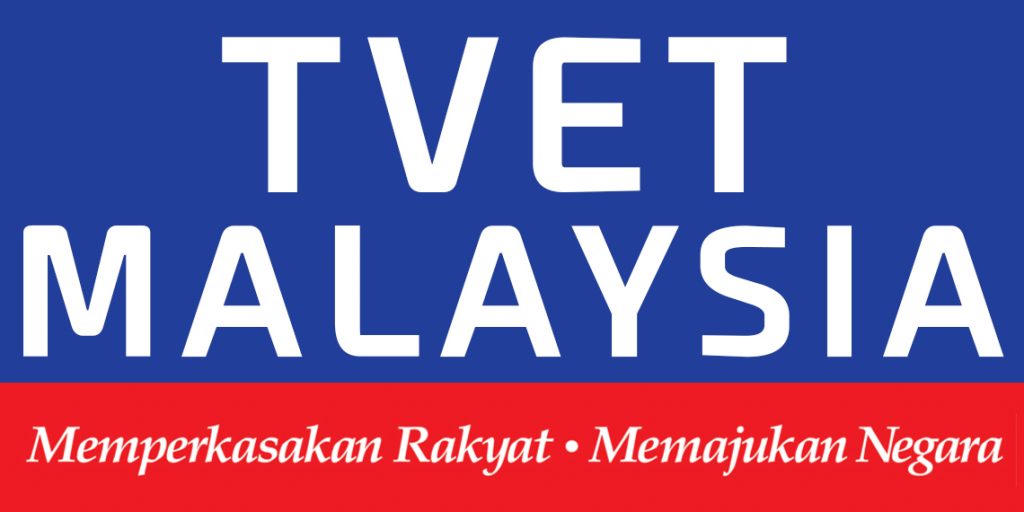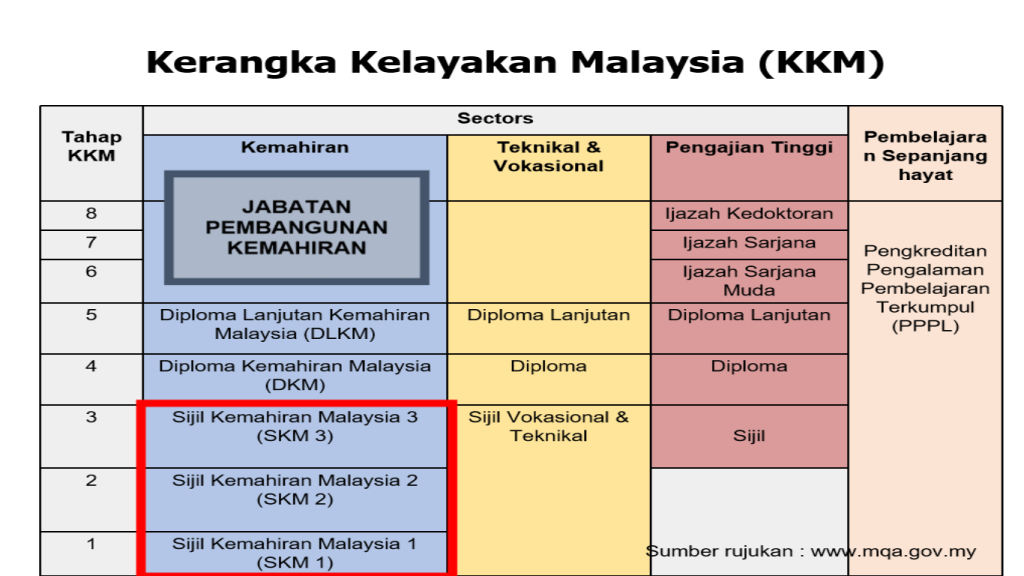TVET in Malaysia
Thinking about pursuing Technical and Vocational Education and Training (TVET) in Malaysia? You’ve come to the right place! Here, we’ll break down 5 key things you need to know about TVET in Malaysia, helping you decide if it’s the right path for your future.
What is TVET?
TVET program, TVET Malaysia, TVET Mara, TVET centre …. these are the common terms that we hear & see in the media. So before we go further, let’s understand TVET meaning.
Jika anda ingin baca dalam Bahasa Malaysia, sila rujuk sini.
TVET stands for Technical and Vocational Education and Training. According to UNESCO’s definition, technical and vocational education is used as a comprehensive term referring to those aspects of the educational process involving, in addition to general education, the study of technologies and related sciences, and the acquisition of practical skills, attitudes, understanding and knowledge relating to occupations in various sectors of economic and social life.
It includes formal and informal learning that prepare young people with the knowledge and skills required in the working world, with major emphasis on industry practices.
The scope of TVET should be based on the Occupational Standards such as the National Occupational Skills Standards (NOSS), with an emphasis on practical components, psychomotor skills and exposure to training in industry.
TVET is not something new in Malaysia. Only that TVET is often misunderstood as a second option and is only eligible for individuals who are less outstanding in terms of academic achievement. In fact, the stigma has become obsolete because now TVET graduates are getting more and more attention from employers.
TVET in Malaysia was given a new lease of life on 27 Sept 2017 with the launch (and branding) of TVET Malaysia by the former Prime Minister, YAB Dato’s Sri Mohd Najib b Abdul Razak to change the parents’ negative perception on TVET skills. This stigma is common given that many of us has been placing more emphasis on academics all this while.

1. TVET in Malaysia - pathway to further education
Contrary to misconceptions, TVET doesn’t limit your educational journey. Many graduates use their qualifications as stepping stones to pursue higher education, enrolling in universities or specialized programs to further refine their skills and expertise.
Generally, there are two streams that offer certificates/diplomas accredited by Malaysian Qualification Agency (MQA).
1. If you are a SPM graduate, you also have the opportunity to further your study, either Certificate or Diploma, in a highly skilled TVET program. Institutions that offer TVET in Malaysia are such as Polytechnics, Community Colleges and Vocational Colleges and Technical Institutes (pre SPM).
2. If you are not so academically inclined but loves to do things hands-on, it does not matter whether you’re a PT3 or non-SPM leaver.
You can also learn TVET program / TVET courses at:
a) Government OR
b) Private TVET institutions OR
c) SLDN/NDTS training centres & companies (apprenticeship scheme)
All these offers Sijil Kemahiran Malaysia, Diploma Kemahiran Malaysia or Diploma Lanjutan Kemahiran Malaysia.

School leavers, with or without SPM, can acquire a TVET qualification from various providers or institutions in all the three sectors. The qualifications offered range from certificate, diploma, advanced diploma Bachelor’s & Masters degree up to Doctorate levels.
Qualifications from the skills sector are awarded by the Department for Skills Development (Jabatan Pembangunan Kemahiran), Ministry of Human Resources. This pathway is available for you whether you have or don’t have SPM qualification.
If you have completed Form 3 (PT3), you have the option of pursuing the skills training pathway (at either public or private skills training institutes) that leads to 5 levels of skills qualifications within the skills sector.
- Malaysian Skills Certificate (SKM) Level 1
- Malaysian Skills Certificate (SKM) Level 2
- Malaysian Skills Certificate (SKM) Level 3
- Malaysian Skills Diploma (DKM) Level 4
- Malaysian Advanced Skills Diploma (DLKM) Level 5
Qualifications from the Technical & Vocational sector (Vocational Colleges, Technical Secondary Schools) is mainly awarded by the Ministry of Education.
Upon completion of primary school education, UPSR (Standard 6), you can opt to pursue Junior Vocation Education or Pendidikan Asas Vokasional (PAV) at government schools.
After completing Form 3, you may also pursue a 4-year vocational education program at MOE’s Kolej Vokasional that leads to the award of Diploma Vokasional Malaysia, DVM. The DVM program at Kolej Vokasional is also open to PAV graduates.
Last but not least, the Higher Education Sector (Polytechnics, Community Colleges & Technical Universities@MTUN is overseen by Ministry of Higher Education.
2. TVET Program/Courses - General Entrance Requirements
You are interested to pursue a TVET program? Let’s see what are the general entrance requirements:
Skills Sector
- Above 16 years old.
- Malaysian. If you’re a foreigner, you can still register for a TVET program at a JPK International Accredited Centre (however, it’s very limited)
- Must be healthy, no physical defects or injuries or historical illness or any illness that limits, restricts or cause difficulty in carrying out practical work during the course.
- Must not be colour blind.
- Has basic reading, writing and counting skills.
- Free from any mental problem.
- Passionate in the chosen TVET program
Technical & Vocational Sector
- Malaysian
- Student of Government Secondary Schools or Government Aided Secondary Schools under Ministry of Education.
- Must be healthy, no physical defects or injuries or historical illness or any illness that limits, restricts or cause difficulty in carrying out practical work during the course.
- Must not be colour blind.
Higher Education Sector
- Malaysian
- Have SPM or it’s equivalent
- Pass Bahasa Melayu
- Pass history (SPM 2013 and beyond)
- Min three (3) credits in any subjects (Additional requirement for Diploma)
- Not color blind or has any physical disabilities that can cause difficulty in carrying out practical work.
3. Strong Employability Prospects
Many of us who are not aware that the TVET field provides many job opportunities with some providing relatively lucrative salaries.
Based on the tracer study of Malaysian TVET graduates, the marketability of skills graduates is higher compared to university graduates (academic diploma/degree/masters/PhD)
As a developing country, TVET graduates have lucrative opportunity as the country needs many skilled manpower in the industry. Most TVET institutions, on the other hand, offer skills that are indeed in demand by many companies today.
These skills not enable you to get a job easier, it can also open up opportunities for yourself to create new job opportunities with existing skills. TVET graduates also have the opportunity to become entrepreneurs with additional existing skills.
4. Advantages of TVET Program
Among the advantages if you are a graduate of TVET program are that you are able to master practical knowledge and skills better than graduates of academic program.
It is definitely the BEST choice for you especially if you are a very hands-on person. Job opportunities are plenty compared to academic based program. Not only that, certain vocation like underwater welding pays very well too.
Unlike the traditional academic route, TVET offers a diverse spectrum of programs. From engineering and healthcare to hospitality and multimedia, you can find a program that aligns with your interests and talents. There are certificate, diploma, and even degree-level programs available, catering to various educational goals.
If you can’t decide which one you like most, perhaps you may use the following list as a guide too. Here are the top 10* most popular TVET programs (in random order) being offered by both government and private TVET institutions.
- Automotive – repair & diagnostic service
- Electrical Installation & Maintenence – Single/Three phase
- Office Administration
- Beauty Therapy
- Computer System
- Industrial Automation/Mechatronics
- Early Childhood Care & Education
- Food Preparation/Culinary
- Graphic Design
- TVET Instruction / Train-The-Trainer
5. Affordable Education
Compared to traditional universities, TVET programs are generally more affordable. With government scholarships and financial aid readily available, pursuing TVET can be a cost-effective way to gain valuable qualifications and launch your career.
Remember, TVET is not a “second choice” but a strategic pathway to a fulfilling career. With its focus on practical skills, industry relevance, and strong job prospects, TVET in Malaysia offers an appealing option for individuals seeking a rewarding and future-proof career path.
Do your research, explore the diverse program options, and consider TVET as a gateway to your success!
